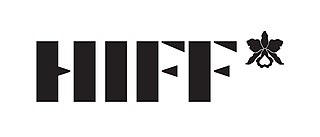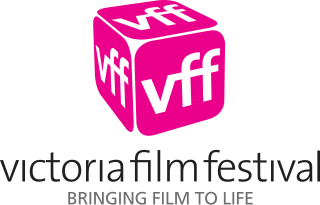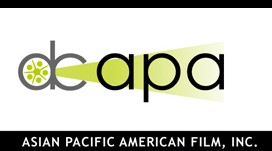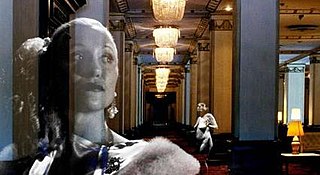Related Research Articles

An independent film, independent movie, indie film, or indie movie is a feature film or short film that is produced outside the major film studio system in addition to being produced and distributed by independent entertainment companies. Independent films are sometimes distinguishable by their content and style and how the filmmakers' artistic vision is realized. Sometimes, independent films are made with considerably lower budgets than major studio films.

Pittsburgh Filmmakers was one of the oldest and largest media arts centers in the United States, operating from 1971 to 2019.
A film school is an educational institution dedicated to teaching aspects of filmmaking, including such subjects as film production, film theory, digital media production, and screenwriting. Film history courses and hands-on technical training are usually incorporated into most film school curricula. Technical training may include instruction in the use and operation of cameras, lighting equipment, film or video editing equipment and software, and other relevant equipment. Film schools may also include courses and training in such subjects as television production, broadcasting, audio engineering, and animation.

The Hawai'i International Film Festival (HIFF) is an annual film festival held in the United States state of Hawaii.

New York Film Academy – School of Film and Acting (NYFA) is a private for-profit film school and acting school based in New York City, Los Angeles, and Miami. The New York Film Academy was founded in 1992 by Jerry Sherlock, a former film, television and theater producer. It was originally located at the Tribeca Film Center. In 1994, NYFA moved to 100 East 17th Street, the former Tammany Hall building in the Union Square. After 23 years of occupancy, the academy relocated from Tammany Hall to 17 Battery Place.
SFFILM, formerly known as The San Francisco Film Society, is a nonprofit arts organization located in San Francisco, California, that presents year-round programs and events in film exhibition, media education, and filmmaker services.

Visual Communications –– is a community-based non-profit media arts organization based in Los Angeles. It was founded in 1970 by independent filmmakers Robert Nakamura, Alan Ohashi, Eddie Wong, and Duane Kubo, who were students of EthnoCommunications, an alternative film school at University of California, Los Angeles. The mission of VC is to "promote intercultural understanding through the creation, presentation, preservation and support of media works by and about Asian Pacific Americans."
International Documentary Association (IDA), founded in 1982, is a non-profit 501(c)(3) that promotes nonfiction filmmakers, and is dedicated to increasing public awareness for the documentary genre. Their major program areas are: Advocacy, Filmmaker Services, Education, and Public Programs and Events.
The Kingston Canadian Film Festival is an annual celebration of the best in Canadian cinema held in Kingston, Ontario. It is the largest stand-alone showcase of feature films from across Canada. The 2021 festival took place from February 26 to March 7, and was the first-ever digital version of the Kingston Canadian Film Festival.
The Boulder International Film Festival (BIFF), sponsored by the Colorado Film Society, is held annually on Presidents Day Weekend in Boulder, Colorado USA, and has developed a reputation as one of the most compelling young film festivals in the U.S., exhibiting a number of new-but-unknown feature films, documentaries, animations, and shorts that have gone on to significant box-office success and multiple Oscar nominations, including Monsieur Lazhar, Burma VJ, Revanche, Wasp, Miracle Fish, The Conscience of Nhem Eh, Waste Land, Incident in New Baghdad, Instead of Abracadabra, Raju, The Fantastic Flying Books of Mr. Morris Lessmore, West Bank Story, The Secret of Kells, 5 Broken Cameras, Chasing Ice, Curfew, Asad,The Missing Picture, and The Wind Rises. More than 23,600 filmmakers, national media, special guests and film enthusiasts attended the four-day BIFF 2014.

The Victoria Film Festival is a publicly attended film festival in Victoria, British Columbia, Canada running for ten days in February. The festival shows both Canadian and international films and unreels 150 films with 55 Features on 6 screens around Victoria. It attracts a continually growing audience, reaching 24,000 in 2011. The festival began in 1995 and is a provincially registered non-profit and federally registered charitable organization.
The Island Media Arts is a non-profit media organization that began with the Island which was incorporated in 1978 in Charlottetown, Prince Edward Island, Canada. The Island Media Arts evolved in 1982 when the co-op became oriented toward film production. Since then IMAC has operated as a non-profit filmmaker's organization. Though the emphasis on film has changed over time to branch into a wider array of media arts disciplines, the objectives have remained the same; to provide a space where artists can hone their skills and exchange ideas.

The DC Asian Pacific American Film Festival is an annual film festival that screens feature films and short films. It is produced by Asian Pacific American Film, Inc., a nonprofit, tax-exempt charity under 501(c)(3) of the Internal Revenue Code in the capital of the United States, Washington, DC. It takes place during the beginning of October each year and includes venues in the downtown Washington, DC area that includes: Landmark's E Street Cinema, Goethe-Institut, and the Meyer Auditorium at the Smithsonian Institution, Freer Gallery of Art and Arthur M. Sackler Gallery.
The Tribeca Film Institute (TFI) is a non-profit arts organization based in New York City, founded in 2001 by Robert De Niro, Jane Rosenthal and Craig Hatkoff following the September 11 attacks as a means to revitalize the arts community in lower Manhattan. TFI launched its first program in 2002, the Tribeca Film Festival.

Ben Caldwell (1945) is a Los Angeles-based arts educator and independent filmmaker.
Cinema Speakeasy is about a curated film screening series based on the West Coast of the United States.

Dodge College of Film and Media Arts is one of 10 schools constituting Chapman University, located in Orange, California, 40 miles (64 km) south of Los Angeles. The school offers undergraduate and graduate degrees, with programs in film production, screenwriting, creative producing, news, documentary, public relations, advertising, digital arts, film studies, television writing, producing, and screen acting.

The Decay of Fiction is a 2002 American 35mm part color and part black-and-white experimental film noir project directed by independent filmmaker and artist Pat O'Neill. The film, initially conceived as a documentary, was produced by O'Neill and Rebecca Hartzell for Lookout Mountain Films. Filming took place in Los Angeles.
Peter Kuttner is a Chicago filmmaker, activist, and cameraman. He is known for his early socially-conscious documentary films that touch on topics such as opposition to United States involvement in the Vietnam War, gentrification of Chicago, racism, and social class. He produced many of these with the film collective Kartemquin Films, of which he was an original member. He is best known for his work on the film The End of the Nightstick (1993) with Cindi Moran and Eric Scholl, which documented police brutality in Chicago and torture allegations against commander Jon Burge. Kuttner has worked extensively in activism and community service, and was a founding member of activist group Rising Up Angry. Kuttner has worked with many collaborators including Kartemquin Collective founder Gordon Quinn, and filmmakers Haskell Wexler and Robert Kramer. He is also known for camera work on a number of major motion pictures including Man of Steel and Source Code.
Lisa Marr is a musician, songwriter, film-maker, photographer, and educator from Vernon, British Columbia, Canada, currently based in Los Angeles, California, and Vancouver, British Columbia, Canada. She has performed as a solo artist and as a member of the Evaporators, the Indecisives, the Bombshells, Cub, Buck, The Beards, The Lisa Marr Experiment, The Here + Now, and Soda & His Million Piece Band. She is sometimes known as Miss Marr in her solo work. She has been credited as the originator of a subgenre of music known as cuddlecore.